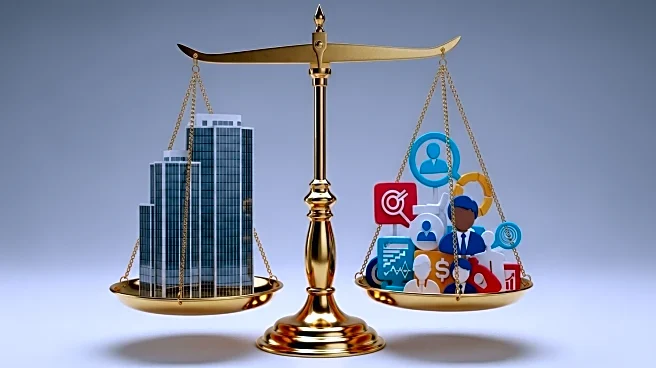What's Happening?
President Trump has signed a proclamation introducing a new $100,000 application fee for H-1B visas. This move is expected to have significant implications for the U.S. workforce, particularly in industries reliant on skilled foreign labor. The H-1B visa program is a critical pathway for companies to hire specialized talent from abroad, and the new fee could alter the dynamics of hiring practices. Paul La Monica, a senior markets writer at Barron's, has analyzed the potential impacts of this fee on the workforce, suggesting that it may lead to increased costs for businesses and potentially reduce the number of foreign workers entering the U.S. labor market.
Why It's Important?
The introduction of a substantial fee for H-1B visa applications could have far-reaching effects on U.S. industries, particularly in technology and engineering sectors that heavily depend on foreign expertise. Companies may face higher operational costs, which could lead to a reevaluation of hiring strategies and potentially impact innovation and competitiveness. This change may also influence public policy discussions around immigration and labor, as stakeholders assess the balance between protecting domestic jobs and fostering a diverse, skilled workforce. Businesses that rely on H-1B visas might need to adjust their budgets and strategies to accommodate the new financial burden.
What's Next?
As businesses and industry leaders digest the implications of the new H-1B visa fee, there may be increased lobbying efforts to influence immigration policy. Companies could explore alternative visa options or invest more in domestic talent development to mitigate the impact. Additionally, political leaders and advocacy groups might engage in debates over the economic and social consequences of this policy change, potentially leading to legislative proposals or amendments aimed at addressing concerns raised by affected stakeholders.









